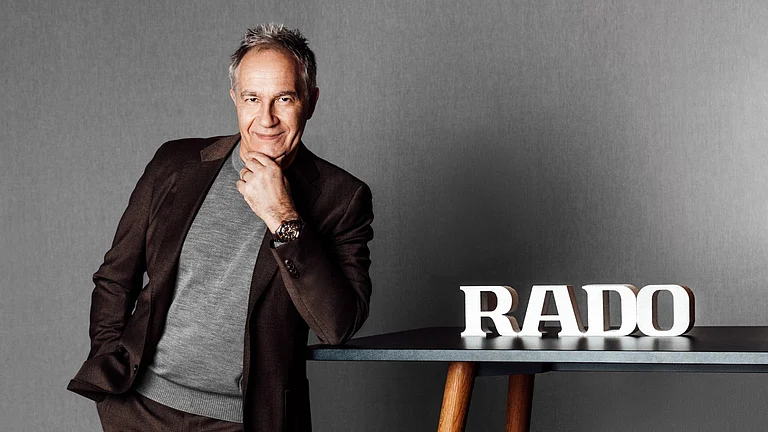The journey was meant to be like this,” said actor Anasuya Sengupta at a press conference after her momentous triumph at the 77th edition of the Cannes Film Festival, arguably the most famous gathering of world cinema heavyweights. Sengupta had just become the first Indian actor to win the Best Actress award in the Un Certain Regard segment at the festival for her role in Bulgarian director Konstantin Bojanov’s Hindi-language film The Shameless.
In the film, Sengupta plays the central character of Renuka, who escapes from a brothel in Delhi after killing a cop. Renuka takes refuge in a community of sex workers, where she meets a young girl, Devika, who is condemned to a life of prostitution and develops a forbidden romance with her.
For India, the win represents a major milestone at the international film gala. “Even though I received the award, it’s a significant victory for the team and the country...it’s a win for all of us,” Sengupta remarked, reflecting on the award.
Stepping out from Behind the Scenes
Sengupta, who is from Kolkata, dabbled in theatre while she was studying English literature at Jadavpur University. During her theatre days, she was part of a troupe called Tin Can, which paved the way for her to land a role in Anjan Dutt’s 2009 film Madly Bangalee. Soon after, she moved to Mumbai. There, she started working as a production designer in a variety of projects that included the Netflix series Masaba Masaba (2020) and Srijit Mukherji’s anthology Ray (2021).
In 2020, she took a leap of faith and moved to Goa and started working as an illustrator. The decision was by no means straightforward, given that it involved moving away from the film industry and brought with it financial and professional uncertainty. It was around this time that Bojanov contacted her on Facebook about auditioning for a lead role in his upcoming feature.
Sengupta has set precedents on multiple grounds—from global resonance to the fact that she doesn’t have formal schooling in films. Ankit Santra, Filmmaker
The two had been friends on Facebook for some years and Bojanov would ‘like’ pictures of the artwork that Sengupta would post, but they had not spoken to each other. The request caught Sengupta off-guard, she wrote on Instagram, but when she read the script, she was convinced. “When Anasuya sent across her audition tape, it was a yes [from me] at first shot. I’m now on the lookout for Anasuya’s Bulgarian twin to cast in my next project,” said Bojanov to The Telegraph.
Breaking the Mould
“Sengupta has set precedents on multiple grounds—from global resonance to the fact that she doesn’t have formal schooling in films,” says filmmaker Ankit Santra. And while it would not be entirely accurate to describe her as someone with no film background, cinema literacy and understanding of the craft are indispensable, whether it is picked up at a film school or on film sets, Santra adds.
The difference between Sengupta’s lived experience and Renuka was stark—in interviews, she spoke about the support she had from family and friends, in contrast with the struggle Renuka had faced. “Renuka is a lone wolf. [She] had a very difficult life, and hardship after hardship. I, on the other hand, have had an extremely supportive circle of friends and family.”
Getting close to her character helped her shine a light on the lack of agency in an often-overlooked group: members of the queer community doubly marginalised by unfair economic circumstances. In her acceptance speech, Sengupta dedicated her award to the queer and other marginalised communities that are fighting for recognition and their rights.
“The wins at Cannes this time have been the biggest we’ve seen in decades and have definitely shifted the discourse in our country. I have felt it myself in festivals. A big win like Cannes opens up this huge pool [of films] to a wider audience,” says Santra.
Coming Into Their Own
In a way the role found Sengupta. It has been a career curve with a fair number of risks and yet perhaps this fluidity helped her to stay open to different possibilities. “As I’ve gone along in life, I’ve tried to prioritise being more and more ‘me’,” she told Codename Bengal.
Is this good news for emerging talent in the film industry? “This is certainly encouragement. They [independent filmmakers] rely on the international festival circuit for survival. And the festival being Cannes should mean a lot,” says Moinak Biswas, professor of film studies at Jadavpur University.
In the meantime, Sengupta is hopeful that the world of cinema will start to include more women-led voices. “There’s still a long way to go, but we also certainly have come a long way as well.”












